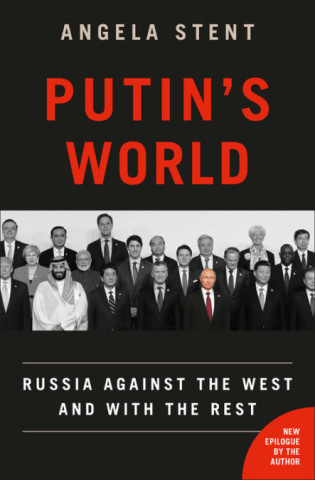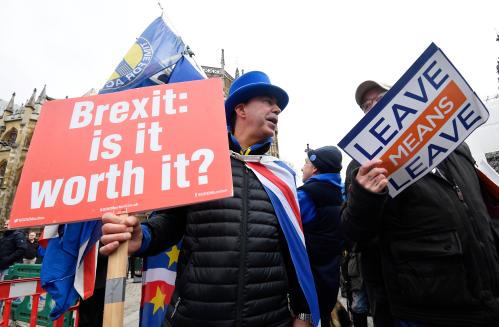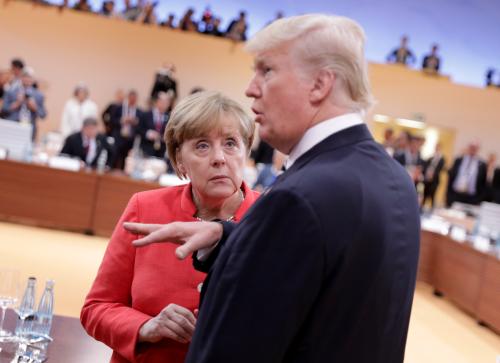Last year’s Munich Security Conference left most participants deeply depressed. It was devoid of leadership (with a limited U.S. presence a year into the Trump administration, the absence of the stalwart Senator John McCain due to his failing health, and no German Chancellor Angela Merkel ahead of elections), dynamism, or big ideas about how to solve the global challenges confronting the trans-Atlantic alliance. Perhaps buoyed by this year’s warm sunshine or distracted by foosball competitions, the mood was more pragmatic: Participants seemed resigned to the reality of the Trump administration and resolved to press ahead with business.
The rift across the Atlantic is deep, with divergent American and European worldviews evident in back-to-back speeches by Chancellor Merkel and Vice President Mike Pence. Merkel delivered a passionate and energetic defense of multilateralism and shared values, leading to a standing ovation from an inspired audience who see her as the greatest defender of the liberal world order.
In contrast, Pence delivered a speech calibrated more for a Trump campaign rally in middle America than a room full of trans-Atlanticists. He began by asking the bemused audience to applaud the largest-ever U.S. delegation (which was striking with the attendance of over 50 members of Congress), listed the president’s policy “achievements” (many of which Europeans had opposed), and found his applause lines met with awkward silence. He articulated a vision of U.S. leadership that requires Europeans to do America’s bidding, exemplified by his call—repeated from the much-maligned Warsaw Summit on Iran earlier in the week—for Germany, France and the United Kingdom to abandon the Iran nuclear deal (Joint Comprehensive Plan of Action, or JCPOA).
Former U.S. Vice President Joe Biden—who was given main-stage billing in a discussion that was framed as anti-Trump and stoked European nostalgia for a past era—promised “we will be back.”
Yet many Europeans are no longer convinced that trans-Atlantic relations will return to “normal” with a new administration; they are increasingly focused on strengthening their own capabilities and forging their own policy solutions. At the same time, European resolve is tempered by the reality of serious challenges within the union. Side events in Munich wrestled with the looming Brexit deadline. A main-stage discussion of Syria highlighted the lack of a clear European Union policy. Merkel reminded the audience that the EU was bigger than France and Germany, with policies requiring buy-in from countries across the continent—not to mention democratic backsliding and rising populism in several of them. Meanwhile, Russian and Chinese speakers seemingly delighted in trans-Atlantic strains.
The global challenges are clear. At the mid-point of the Trump administration, the opposing American and European worldviews are evident—as are the weaknesses on both sides of the Atlantic. In the coming years, we will see whether this rift becomes permanent, whether “America First” does become “America Alone,” and whether Europe has the capacity and will to overcome internal divisions and assume greater responsibilities.








Commentary
Dispatch from Munich: The trans-Atlantic rift persists amid weaknesses on both sides
February 18, 2019